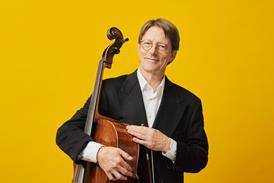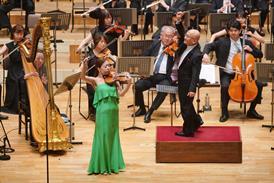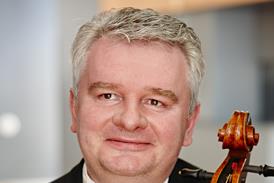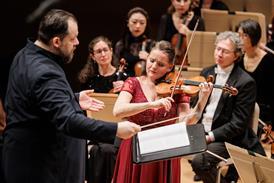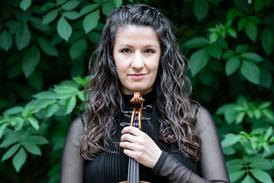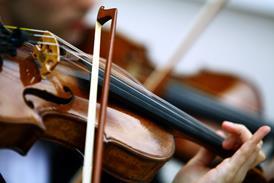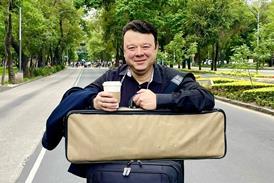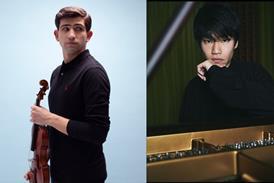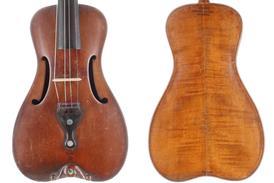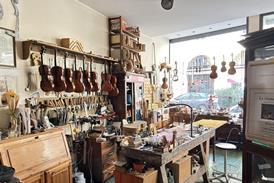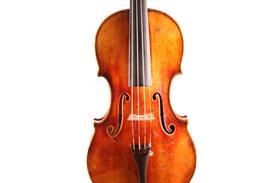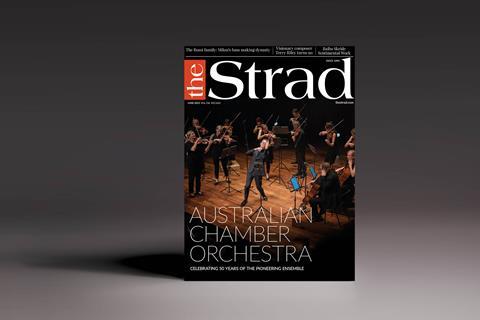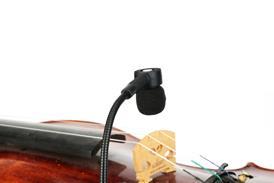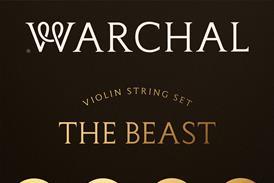Christian Lloyd
Christian is the former editor of both International Arts Manager magazine and the Performing Arts Yearbooks. He takes care of the In Focus, Trade Secrets, My Space, Making Matters and Sentimental Work sections of The Strad, as well as all feature articles relating to instruments and lutherie, the posters, book reviews and the news pages.
Contact info
- Tel:
- +44 (0)20 7618 3066
- Email:
- christian.lloyd@thestrad.com
 Focus
FocusThe Strad Calendar 2025: 1717 ‘Windsor, Weinstein’ Stradivari violin
The first Stradivari violin to be given to the Canada Council’s Musical Instrument Bank, it remains in top-class condition
 Focus
FocusThe Strad Calendar 2025: 1730 ‘Newland’ Giovanni Francesco Celoniato cello
One of only eight cellos known to be made by the Turin-based luthier, it is named after Canadian cellist Christine Newland
 Blogs
BlogsHow to photograph violins: Tarisio’s Robert Bailey speaks to the VSA
The auction house’s head photographer gives details on his camera set-up, lighting, studio layout and the different requirements of front, side, back and scroll shots
 Blogs
BlogsViolin trivia: Can you beat the VSA’s top brains?
Test your violin knowledge with some of the questions from the VSA convention’s Trivia Night on Monday 18 November
 Blogs
BlogsWhere the wood came from: Peter Ratcliff speaks to the VSA
The British dendrochronology expert explains his latest research, revealing how wood from one source can appear in centuries-old instruments made thousands of miles apart
 Focus
FocusThe Strad Calendar 2025: 1820 Giovanni Francesco Pressenda violin
Possibly the first instrument ever made by Pressenda, it boasts a two-piece back of slightly burled quarter-cut maple
 Blogs
BlogsViolin Society of America’s 50th convention kicks off in Indianapolis
Exhibitions, lectures and demonstrations were all in evidence on the first day of proceedings
 Focus
FocusThe Strad Calendar 2025: c.1696 ‘Bonjour’ Antonio Stradivari cello
A beautiful instrument with plentiful red–brown varnish, it has been played by Robert Cohen, Martin Lovett and others
 Focus
FocusThe Strad Calendar 2025: 1747 ‘Palmason’ Gennaro Gagliano violin
Named for Canadian violinist Pearl Palmason, the violin has a back of one piece of maple with broad figure
 Focus
FocusThe Strad Calendar 2025: 1824 ‘McConnell’ Nicolò Gagliano II cello
A rare cello by the least prolific member of the Neapolitan family, the ‘McConnell’ has a two piece back of slab-cut poplar
 Focus
FocusThe Strad Calendar 2025: 1689 ‘Baumgartner’ Antonio Stradivari violin
Marking the end of Stradivari’s early ’Amatisé’ period, it is named for the Swiss violin dealer Fritz Baumgartner
 Focus
FocusThe Strad Calendar 2025: 1871 Jean-Baptiste Vuillaume violin
An exact copy of Stradivari’s ‘Messiah’, it remained in a vault in Paris for more than 70 years
 Focus
FocusThe Strad Calendar 2025: c.1700 ‘Bell’ Giovanni Tononi violin
With a reddish-brown varnish over a golden ground, this violin shows the influence of Nicolò Amati
 Focus
FocusThe Strad Calendar 2025: 1715 Domenico Montagnana violin
A rare example of a violin by the noted Venetian maker of cellos, it has a two-piece back of irregular figure
 Focus
FocusThe Strad Calendar 2025: 1700 ‘Taft’ Antonio Stradivari violin
Boasting beautiful orange–red varnish, it was formerly played by Emil Heermann, concertmaster of the Cincinnati Symphony Orchestra
 Focus
FocusThe Strad Calendar 2025: 1706 ‘Brott-Turner’ David Tecchler cello
The first instrument ever added to the Musical Instrument Bank of the Canada Council for the Arts, it is a masterpiece of the Rome-based luthier’s work
 Review
ReviewBook review: Violin Makers in Naples from the 17th Century
Christian Lloyd reads Ernesto de Angelis’s treatise on Neapolitan lutherie, now translated into English for the first time
 Focus
FocusThe Strad Calendar 2024: 1742 ‘Lord Wilton’ Guarneri ‘del Gesù’ violin
Best known as Yehudi Menuhin’s instrument for much of his career, the violin is still in an excellent state of preservation
 Focus
FocusThe Strad Calendar 2024: 1733 ‘Sassoon’ Antonio Stradivari violin
Made when the master luthier was 89 years old, it has plentiful, rich reddish-brown varnish
 Focus
FocusThe Strad Calendar 2024: 1737 ‘Panette’ Guarneri ‘del Gesù’ violin
For years the main instrument used by Isaac Stern, it is now in the hands of Renaud Capuçon.


